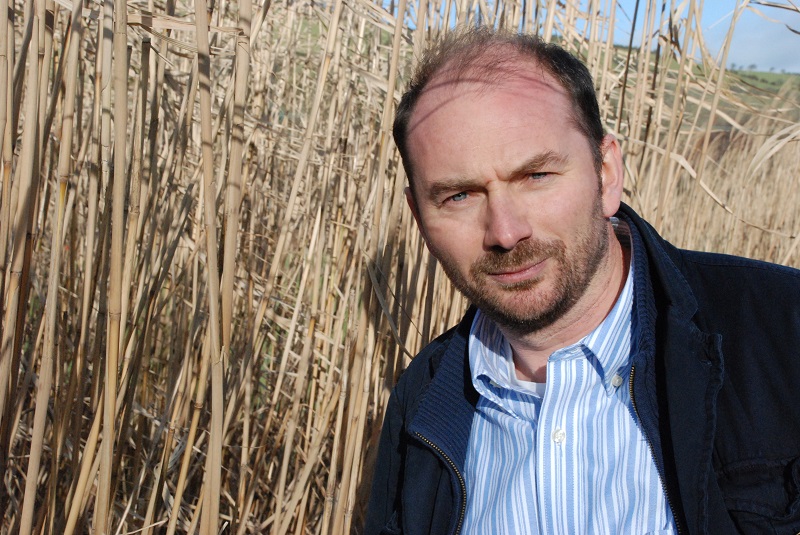New zero carbon emissions target to lead to significant changes to agriculture according to Aberystwyth academic

Professor Iain Donnison
03 May 2019
An ambitious new target to reduce greenhouse gas emissions to zero by 2050 will lead to significant changes in farming practices over coming decades, according to a leading agri- environment specialist.
Professor Iain Donnison, Head of the Institute of Biological, Environmental & Rural Sciences (IBERS) at Aberystwyth University, was responding to the publication today (Thursday 2 May 2019) of Net Zero: The UK’s contribution to stopping global warming by the UK Government Committee on Climate Change.
Professor Donnison is an expert on agriculture and land use, which feature in the report in terms of targets for one fifth of agricultural land to be used for forestry, bioenergy crops and peatland restoration.
According to Professor Donnison such a reduction is very ambitious but achievable in Wales and the wider UK. “Land use can positively contribute towards achieving the net zero targets, but there are challenges in relation to emissions from agriculture especially associated with red meat and dairy,” said Professor Donnison.
“In IBERS we are already working on how to make livestock agriculture less carbon intensive and developing new diversification options for the farming of carbon. For example, net zero targets could provide significant diversification opportunities for both farmers and industries that make use of biomass and wood for the production of energy, materials including in construction and for wider environmental benefits.”
Professor Donnison added: “The report gives a clear message regarding the importance of the task and the role that the UK can play to compensate for past emissions and to help play a leadership role in creating a greener future.
“The report says it seeks to be based on current technologies that can be deployed and achievable targets. One fifth of agricultural land is a very ambitious target but I believe that through the approaches proposed it is achievable (e.g. for bioenergy crops it fits in with published targets for the UK). This is based on the knowledge and technologies we have now regarding how to do this, and because right now in the UK we are developing new agricultural policy that looks beyond the common agriculture policy (CAP). For example the 25 year Environment plan published by Defra envisages payment for public goods which could provide a policy mechanism to help ensure that the appropriate approaches are implemented in the appropriate places.
“The scale of the change however should not be underestimated, although agriculture is a sector that has previously successfully responded to challenges such as for increased food production. The additional challenge will be to ensure that we deliver all the benefits we wish to see from land: food, carbon and greenhouse gas (GHG) management and wider environmental benefits, whilst managing the challenge of the impacts of climate change.
“The link is made between healthy diets with less red meat consumption and future reductions in greenhouse gas emissions from agriculture. This reflects that agriculture will likely go through significant change over the coming decades as a result of changes in consumer diets. Net Zero targets however could provide significant diversification opportunities for both farmers and industries that make use of biomass and wood for the production of energy, materials including in construction and for wider environmental benefits.”
Professor Donnison is available for interview. Contact Dawn Havard 01970 628440 / dbh@aber.ac.uk or Arthur Dafis 01970 621763 / 07841 979452 / aid@aber.ac.uk.



